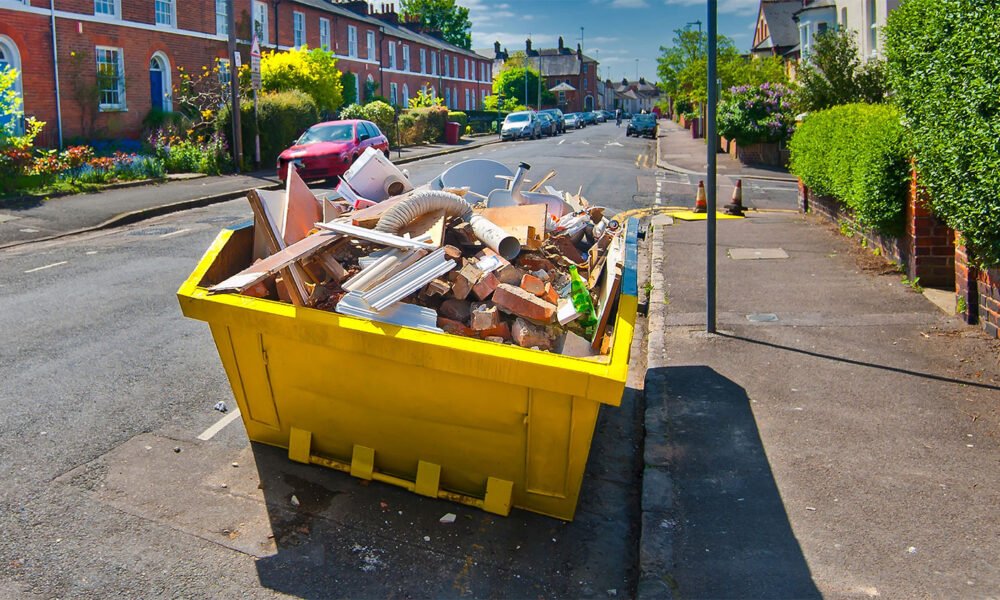When tackling home renovations, decluttering projects, or large-scale clean-ups, skip hire services become invaluable. Opting for skip hire Parbold presents an efficient avenue for managing waste stemming from home renovations, garden clearances, and extensive clean-up projects. However, before hastily booking the first available skip, it’s imperative to grasp the intricacies involved to make a well-informed decision. Doing so not only aids in saving time and money but also guarantees environmentally responsible waste disposal by local regulations.
By understanding factors such as skip size, placement regulations, and waste segregation requirements, you can optimise your skip-hire experience for maximum efficiency and compliance. Skip hire Parbold offers a range of skip sizes tailored to diverse needs, ensuring that you find the perfect fit for your project while adhering to legal and environmental standards. Here’s a comprehensive guide on how to book a skip hire service, covering everything you need to know.
Determine the Right Size:
When selecting the appropriate skip size, it’s crucial to assess the scope of your project. Skips are available in a range of sizes, from compact 2-yard mini skips to expansive 40-yard roll-on roll-off containers. For smaller tasks like clearing out a single room, a mini or midi skip may suffice, while larger endeavours such as home renovations necessitate a builder’s skip or larger option.
Additionally, it’s essential to consider potential overfill penalties. Opting for a slightly larger skip than initially estimated can mitigate the risk of exceeding capacity and incurring additional charges. By accurately gauging your waste volume and selecting the right skip size, you can streamline the waste disposal process and avoid unnecessary expenses.
Know What You Can and Cannot Throw into a Skip:
While skips offer convenient waste disposal solutions, it’s crucial to be mindful of prohibited items and potential surcharges. Certain materials, such as refrigerators, tyres, batteries, chemicals, asbestos, paint cans, and fluorescent tubes, are prohibited from skip disposal due to safety and environmental concerns.
Items like mattresses or electrical goods may incur additional fees for disposal. To ensure compliance and avoid penalties, always consult with your skip provider regarding the specific items you plan to dispose of. By adhering to waste disposal guidelines and restrictions, you can uphold safety standards and minimise the risk of environmental harm.
Understand Skip Permit Requirements:
If placement on public land, such as a road, is necessary due to space constraints, obtaining a skip permit from the local council is imperative. Application processes and fees for skip permits vary among councils, so it’s essential to familiarise yourself with the requirements of your specific area.
To avoid delays, it’s advisable to apply for a permit several days in advance of the skip delivery date. Most permits typically have a duration of two weeks, but extensions can often be arranged for an additional fee. By understanding skip permit regulations and securing necessary permissions in advance, you can ensure a smooth and compliant skip-hire experience.
Book in Advance:
To secure your desired delivery date and skip size, it’s crucial to book your skip hire service well in advance, especially during peak seasons or for larger projects. By booking ahead, you ensure availability and avoid last-minute hassles. Planning allows you to effectively organise your waste disposal timeline and ensures a seamless process from start to finish.
Arrange Delivery and Collection:
Once you’ve booked your skip, coordinate the delivery and collection schedule directly with the skip hire company. Provide clear and concise instructions regarding the placement of the skip, ensuring accessibility for both the delivery and collection vehicles. Clear pathways and designated areas for the skip placement facilitate efficient service and minimise disruptions to your project timeline.
Load the Skip Safely:
When loading the skip, prioritise safety and efficiency by distributing the waste evenly to maximise space utilisation. Avoid overloading the skip beyond its capacity, as this poses safety hazards during transportation and may result in additional fees. By loading the skip safely and responsibly, you not only ensure smooth transportation but also contribute to a safer working environment for the skip-hire personnel. Remember to adhere to any guidelines provided by the skip hire company regarding permissible waste materials and loading procedures.
Properly securing loose debris within the skip prevents spillage during transit and minimises environmental impact. Consider segregating recyclable materials to facilitate proper disposal and minimise landfill waste. By following these guidelines, you can optimise the use of your hired skip and contribute to a more sustainable waste management approach.
Conclusion:
Booking a skip-hire service involves several considerations to ensure a seamless and efficient waste management process. By understanding your needs, researching providers, choosing the right skip size, and complying with regulations, you can effectively book a skip that meets your requirements. With proper planning and organisation, skip hire can simplify the disposal of waste during home renovations, construction projects, or decluttering efforts. Also read:
How to Maintain Cleanliness in Surroundings?




